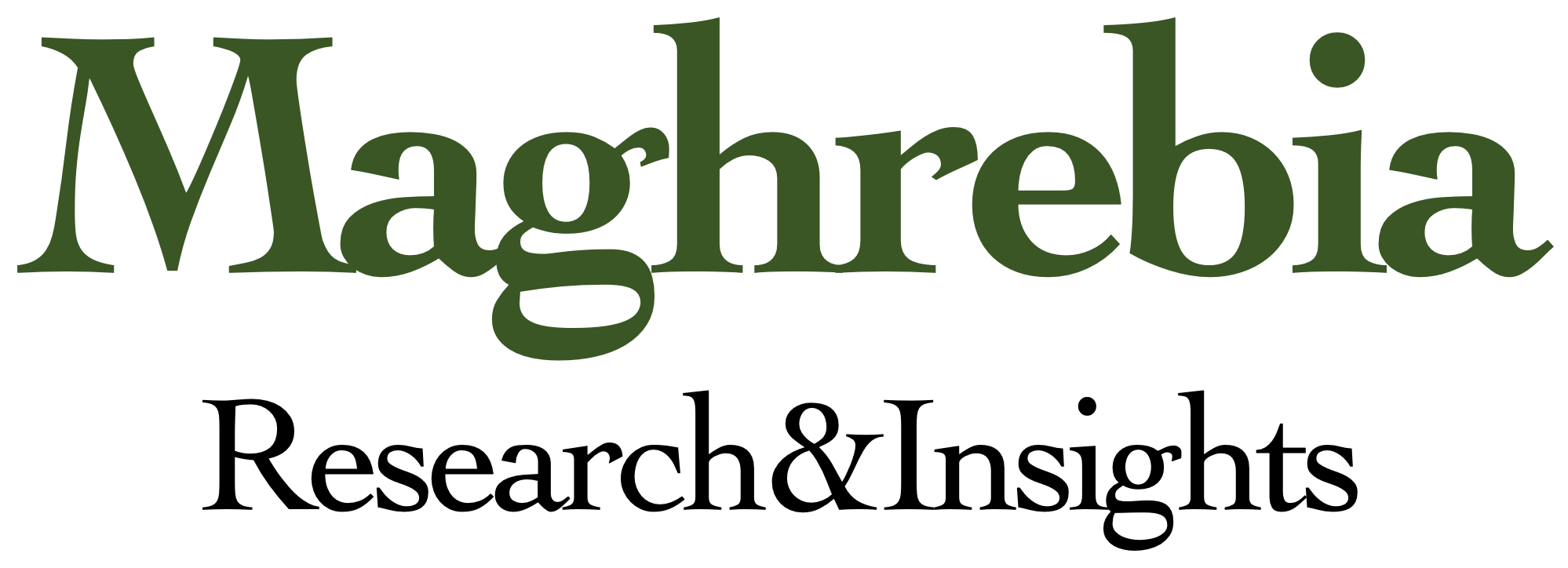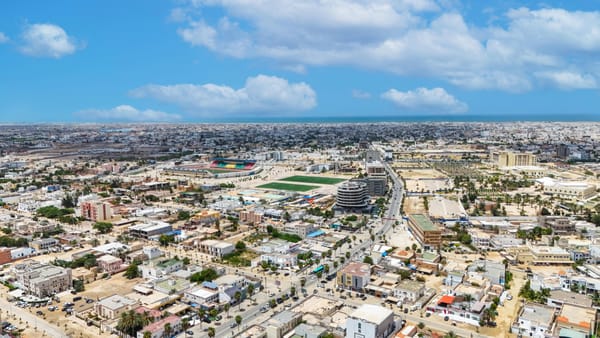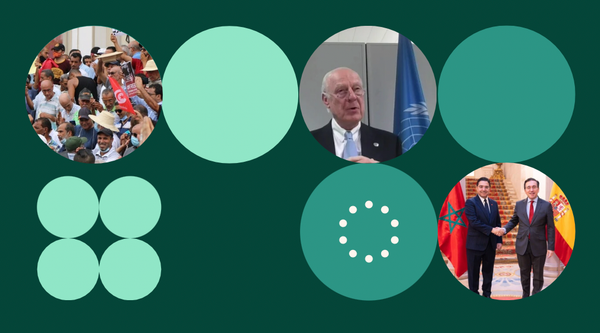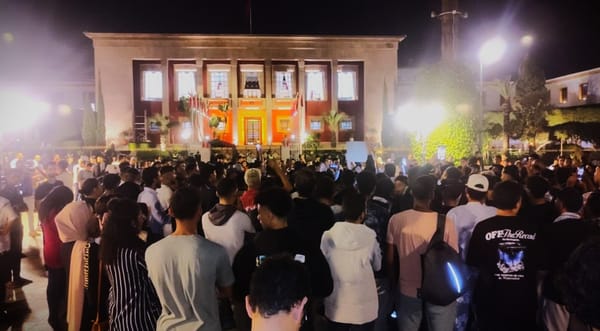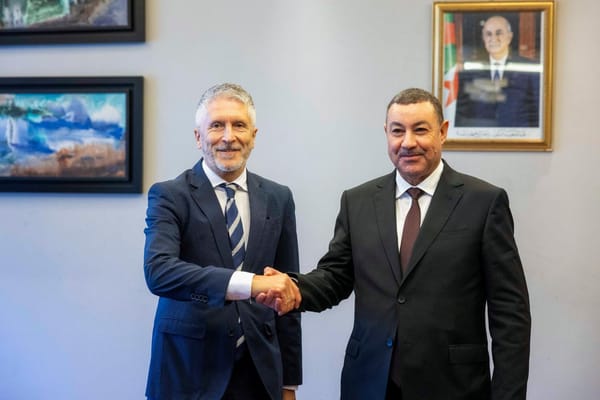#6months of Tunisia
NEWSLETTER. Imprisonment of opponents, economic unrest, withdrawal from foreign affairs.

What happened.
The domestic political climate has deteriorated considerably over the last six months, largely due to a series of highly controversial mass trials in which prominent opponents of Kais Saïed's regime have been prosecuted. In early March, the trial for 'conspiracy against state security' began for forty individuals, including lawyers, politicians, activists, and journalists. Many of these individuals had been detained up to two years earlier and were described by President Saïed as 'terrorists' for 'attempting to change the form of the state'. Among those on trial were several high-profile individuals, including Rachid Ghannouchi, the leader of the Ennahdha party, and the French philosopher Bernard-Henri Lévy (who was tried in absentia). The sentences, which ranged from four to sixty-six years in prison, were strongly criticized by the defence and HRW for violating the rights of those convicted, as well as for the total absence of evidence. In May, the so-called 'Case 2' trial began against 21 people (including Ghannouchi again) for similar crimes. This trial also resulted in sentences ranging from 12 to 35 years in prison.
In June, Abir Moussi, leader of the Free Destourian Party, was sentenced to two years' imprisonment under the infamous 'Decree 54'. Enacted in 2022 to combat cybercrime and disinformation, this legal text is, according to those affected, being used as a repressive tool to severely punish any criticism of the regime. The same decree allowed for the prosecution of lawyer Sonia Dahmani, who was sentenced to two years in prison in July for spreading 'false rumours' about alleged racist practices in the country.
Other high-profile convictions in the first half of the year included former president Moncef Marzouki (2011–2014), who is now in exile in France. He was sentenced to twenty-two years in prison for 'terrorism-related crimes', in addition to other sentences totalling four years in 2021 and eight years in 2024. Former prime minister Ali Laarayedh (Ennahdha, 2013–2014) was sentenced to thirty four years in prison for sending jihadists to Syria and Iraq during his time in office.
The climate of intense judicial pressure has significantly impacted protest movements, which, with a few exceptions, have reduced their street presence for fear of arrest. Although the macro-trial sessions drew dozens of demonstrators to the vicinity of the courthouses, no major demonstrations took place except in the capital. In August, Saïed's supporters attacked the CGTT headquarters and he failed to condemn the attack. This led some 2,000 demonstrators to support the protest called by the union. At the protest, they put forward political demands for their own existence, as well as demands against the police state and militias. They also put forward economic demands due to the increase in food prices. The latest measure to restrict fundamental rights was the closure of the National Authority for Access to Information, a key institution for transparency and accountability on the part of public authorities that was created in 2017.
Indeed, the effect of the demonstrations on the regime's actions is limited. This does not appear to be the reason why, in March, President Saïed replaced Prime Minister Kamel Madouri with Sara Zaafrani, making her the sixth prime minister and second woman to hold the post under his presidency. A 62-year-old engineer with no political affiliation, she has held the position of Minister of Equipment and Housing since 2021.
Since the beginning of the year, the country has been testing the risky financial plan set out by the president, with mixed results. Despite some signs of economic growth and improved confidence among rating agencies, Saïed's refusal to accept foreign loans and his deteriorating relationship with the IMF are making it difficult for him to balance the budget. The new finance law has led to higher taxes on higher incomes and businesses, and increased dependence on domestic borrowing (from both the Central Bank and private banks). This could lead to a decline in credit to individuals and an increase in prices. Nevertheless, the inflation rate has remained stable since late 2024 due to favourable olive and date production seasons and a significant increase in tourism, and has continued to decrease over the past six months, reaching 5.2% in August — the lowest rate since 2021.
In terms of foreign policy, Tunisia has scaled back its relations with the West while strengthening its ties with Africa and its neighbours Algeria (its main supporter) and Italy (whose prime minister, Giorgia Meloni, visited Tunisia again at the end of July). Remaining true to its traditional stance, Tunisia is a staunch defender of Palestinian self-determination and has denounced 'Zionist aggression' in the Gaza Strip. Civil society has played a particularly prominent role in this effort by organising a land convoy of around 1,000 people intending to cross the Egyptian border at Rafah. However, this was prevented after the convoy was stopped in eastern Libya. President Saïed has officially expressed outrage at the situation in Palestine and categorically denied any rumours of normalisation with Tel Aviv. However, the leader has been accused of severely limiting social mobilisations in support of the Palestinians and of blocking a legislative initiative aimed at criminalising relations with Israel. In any case, Tunisia is forging its own path by avoiding joining other multilateral initiatives or condemnations. For example, it showed coldness towards the Egyptian plan for Gaza within the framework of the Arab League. During the Israeli bombing of Iran, Tunisia issued its own statement, running parallel to those issued by most Arab League countries.
Relations with the US are not at their best. President Trump paid Tunisia less attention during his first term, and during his second term the country does not seem to be a priority for his administration, particularly due to the democratic setback and Saïed's unyielding stance on normalisation with Israel. Therefore, despite Tunisia once again hosting part of the annual African Lion exercises, apparently indicating continued alignment in terms of military cooperation, in August the White House began applying 25% tariffs on Tunisian imports (compared to 10% for Morocco and Mauritania). This followed a failure to reach an agreement on the matter, despite the efforts of Trump's special envoy, Massad Boulos, to convince Saïed to join the Abraham Accords.
What's next.
The progressive deterioration of civil liberties and fundamental rights will continue in the coming months. Prime Minister Zaafrani will continue to implement President Saïed's agenda, and barring any unforeseen events that could trigger change, social mobilisation does not appear likely to increase significantly, even when the appeals against the verdicts in major court cases involving opposition figures and political activists are resolved.
Firstly, it remains to be seen whether the president will be able to end the prolonged delay in fulfilling his commitments. Despite being re-elected almost a year ago, he has made little progress in fulfilling his election promises to regenerate the country and has yet to establish regulations for institutions set out in the new constitution, such as the Constitutional Court. His most notable legislative actions have been the amendment of the Labour Code (which ended subcontracting and precarious work but also curtailed trade unions) and the new bank cheque law (which has caused difficulties for small and medium-sized businesses that are accustomed to using cheques). It will also be important to observe how the legislative branch behaves. It has been accused of becoming a mere ratifier of the president's government decrees, despite refusing to approve an €80 million loan from the French Development Agency.
Conversely, we will see if the government's economic gamble bears fruit and if growth forecasts are met, or if high domestic debt takes its toll on Tunisian finances by putting too much pressure on the banking system.
Internationally, we can expect to see the strengthening of the Algiers-Tunis-Rome axis in terms of energy, migration and security, given the countries' shared interests in the Libyan issue. Tunisia also intends to promote the so-called 'Africa Gateway': a commercial initiative that aims to facilitate the movement of goods between Mauritania, Algeria, Tunisia and Libya, connecting them with Europe. Additionally, Tunisia aims to provide landlocked southern countries such as Chad, Mali, Burkina Faso and Niger with a maritime outlet via Libya, thereby competing with Morocco's 'Atlantic Initiative' and capitalising on Algeria's deteriorating position in the Sahel region.
Finally, the entire region may face a period of social upheaval due to several countries – mainly Western ones – announcing the recognition of the Palestinian State during the next UN General Assembly on 22 September. This declaration could generate momentum that the ‘Arab street’ could exploit to multiply social protest movements.
